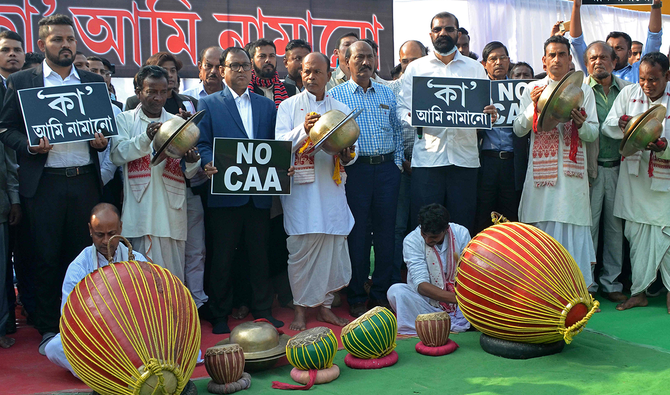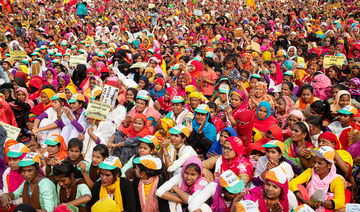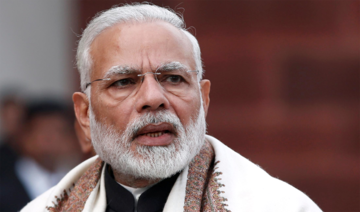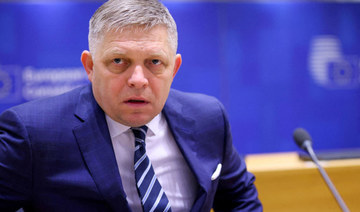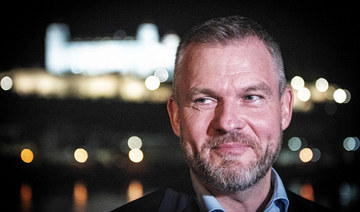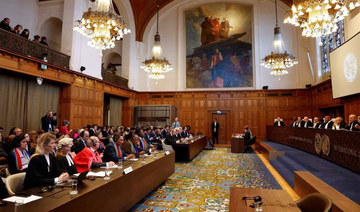NEW DELHI: Dec. 11 marked the first anniversary of the passing of the controversial Citizenship Amendment Act (CAA) in India.
However, the ruling Bharatiya Janata Party (BJP), which introduced the law with much fanfare, has failed to implement the legislation. Some experts suggest this is a result of “domestic and international political pressure.”
“The BJP is trying to find a way out of the contradictions it finds itself in after (introducing) the CAA,” said Snigdhendhu Bhattacharya, a journalist in Kolkata and author of “Mission Bengal: A Saffron Experiment.”
“The party finds great resistance to the CAA in the northeastern state of Assam but is amenable to implementing it in Bengal, where it sees a great electoral dividend in the coming regional elections in April. The party is not able to balance the interests of Assam and Bengal.”
Under the CAA, members of Hindu, Sikh, Jain, Parsi and Christian minorities who moved to India from Bangladesh, Pakistan and Afghanistan before Dec. 31, 2014 are eligible to become citizens. Muslims are excluded.
The legislation is part of the government’s proposed National Register of Citizens (NRC) initiative, an exercise it says is designed to identify “genuine citizens” of India. If any non-Muslims are left out of the NRC, they will not be declared stateless because they would be protected by the CAA — a privilege denied to Muslims.
When asked by Arab News on Wednesday about the failure to implement the CAA a year after its introduction, BJP national spokesman Sudesh Verma refused to comment.
Rupam Goswami, the BJP’s spokesman in Assam, said it would be implemented “sooner or later.”
He said: “Our national president has said that the government will frame the rule,” and added that “people in Assam are in favor of CAA and we will do well in the upcoming elections.”
Some disagree with this assessment, however, and say the legislation is fundamentally flawed.
“The way the CAA has been designed is based on a flawed notion of citizenship,” said Prasenjit Bose of the Joint Forum Against the NRC/CAA.
“The flaw is that you are not demarcating who are refugees and who are so-called infiltrators. The BJP brought the concept of illegal migrants. The ruling party, through its flawed policy, has converted all refugees into illegal migrants.”
Demonstrations took place across India in December last year as Muslims protested against the introduction of the act. In New Delhi, Muslims and other groups participated in a three-month strike in protest against the law. In response the BJP organized counterprotests that culminated in clashes and violence in the city in February, during which more than 50 people, mostly Muslims, were killed. A number of students, activists and Muslim political workers were detained on draconian terror charges. Many are still behind bars.
The BJP developed the idea for the CAA after Assam shared its citizenship list in September 2019. A majority of the 1.9 million people left off of the NRC were Bengali Hindus, who form part of the party’s core vote. Protests erupted across the state when the CAA came into effect, however, with ethnic Assamese demanding it be scrapped.
“The CAA is an unconstitutional act and it has been imposed by the central government forcefully,” said Lurinjyoti Gogoi, former general secretary of the All Assam Students Union and leader of the newly founded Asom Jatiya Parishad party.
“We are very clear that we cannot accept a load of illegal foreigners (who arrived) after March 25, 1971. A foreigner is a foreigner be it Hindu or Muslim.”
An anti-foreigner movement in the early 1980s led to the Assam Accord of 1985, as part of which the Indian government agreed to a cut-off date of March 25, 1971 for citizenship. Anyone who entered India after that would be considered a foreigner.
“We will intensify the anti-CAA agitation further,” Gogoi added.
Assam is due go to the polls in February but the rules for the CAA have not yet been framed. Kalyan Baruah, a senior journalist at the Assam Tribune, said the government appears to have taken “a step back” from the legislation, given the delay in implementing it.
“Because of the CAA, the BJP stands to lose politically,” he said. “The party has incurred the wrath of the people by enacting it.”
Illegal migration is also a prominent issue in the Bengal region of eastern India, which is due to go to the polls in April. The BJP is banking on the support of the Hindu Matua community there, which migrated to India in large numbers during the Bangladesh liberation war in 1971. During the most recent general election, the party promised to grant citizenship rights to the Matuas. However, the delay in implementing the CAA is “causing anxiety in the community.”
Bose said: “The problem is technical. The Matua community has been enjoying all the benefits of Indian citizenship so far … if they accept citizenship under the CAA, they will have to declare themselves as illegal refugees.
“The community is now demanding unconditional citizenship; that is, citizenship without any documents. So the CAA is becoming a farce.
“The BJP is facing a dilemma. If it goes ahead with the CAA, it would be a bluff. If the rules are set according to the interests of the Matua community, it will have electoral ramifications.”
Some political experts say international pressure on the government might be another reason for the delay in implementing the act.
“There could be some international concerns in the minds of the government,” said Bhattacharya. “I think New Delhi is sensitive about the repercussions in its relationship with Bangladesh.
“The Indian government might also be mindful about the change in regime in the US.”
Suhas Chakma, director of human-rights organization the Rights and Risks Analysis Group, agreed and added: “India has changed its policies on many (things) with tacit support from (US President Donald) Trump’s regime (but) the new Democratic regime in Washington is not going to be lenient with the Modi regime.”
The publication of the 2020 South Asia State of Minorities Report coincided with the first anniversary of the CAA. It stated that India has become a “dangerous and violent space for Muslim minorities” since the BJP introduced its amendments to the Citizenship Act last year.
It added that the since it assumed power in 2014, the party has “unveiled a new and now a frontal attack on religious minorities and other vulnerable groups. This has had a chilling effect on civic space for Muslims and Muslim community-based organizations and activists, specifically.”



